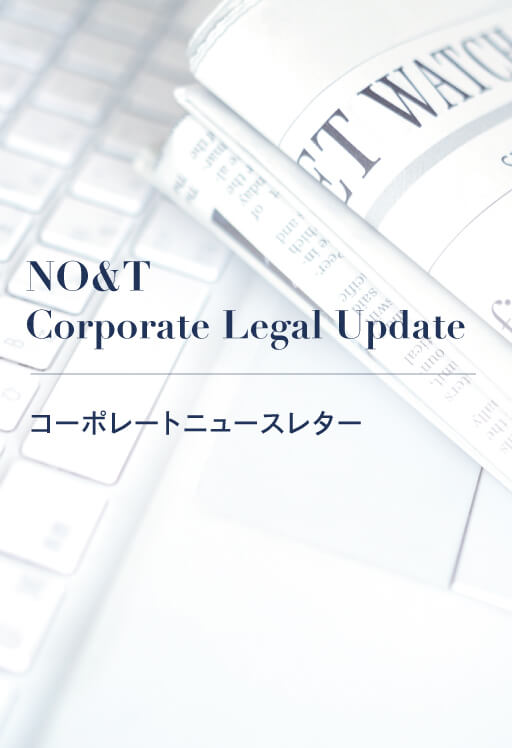
NO&T Asia Legal Review
On September 9, 2024, the Ministry of Corporate Affairs notified certain provisions of the Competition (Amendment) Act, 2023 (“2023 Amendment Act“) and introduced the deal value threshold for combinations under the Competition Act, 2002 (“Competition Act”). Pursuant to the 2023 Amendment Act, the Competition Commission of India (“CCI”) introduced the Competition Commission of India (Combinations) Regulations, 2024 (“Regulations“) effective from September 10, 2024 (together with the 2023 Amendment Act, the “Revised Competition Law”). The deal value threshold adds a new layer of scrutiny for mergers and acquisitions that meet specific financial thresholds specified under the Competition Act.
This article explains the deal value threshold and what businesses need to consider to ensure compliance with the Revised Competition Law.
Under the Revised Competition Law, the CCI now mandates prior notification for combinations (as defined in the Competition Act) that meet the following conditions:
This introduces a deal value threshold—an additional criteria alongside the previously existing tests based on the size of the parties’ assets and revenues both within India and worldwide. Where the transaction satisfies the above parameters, such transaction will require prior approval of the CCI, regardless of the size of the target enterprise in India.
For the deal value threshold to apply, the target company must have “substantial business operations in India” (“SBOI”). The CCI defines SBOI based on whether the target enterprise is engaged in digital services or other services:
The Revised Competition Law clarifies that the “value of transaction” includes every valuable consideration, whether direct or indirect, immediate or deferred, cash or otherwise, and includes:
More importantly, if the value of transaction cannot be established with reasonable certainty, by the board of directors or any other relevant approving authority of the person obligated to file notification to the CCI, the value of the transaction may be considered as exceeding the deal value threshold.
Under the previous regulatory framework, a de minimis exemption allowed certain small combinations (where the target enterprises’ assets in India were under INR 450 crore or its revenue in India was below INR 1,250 crore) to be exempted from prior approval of the CCI. However, with the introduction of the deal value threshold, the de minimis exemption does not apply if the transaction satisfies the conditions of the deal value threshold.
The introduction of the deal value threshold marks a significant shift in how large-scale M&As will be assessed, bringing several key considerations for businesses to address:
*1
“Digital services” means the provision of a service or one or more pieces of digital content, or any other activity by means of an internet whether for consideration or otherwise to the end user or business user, as the case may be.
*2
Relevant date means the date on which the approval of the proposal relating to merger or amalgamation is accorded by board of directors or the date of execution of agreement or the date of such other document for acquisition or acquiring of control referred to in sub-section (2) of Section 6 of the Competition Act.
This newsletter is given as general information for reference purposes only and therefore does not constitute our firm’s legal advice. Any opinion stated in this newsletter is a personal view of the author(s) and not our firm’s official view. For any specific matter or legal issue, please do not rely on this newsletter but make sure to consult a legal adviser. We would be delighted to answer your questions, if any.


Takashi Itokawa, Takahiro Kitagawa (Co-author)


Kenji Utsumi, Masatsura Kadota, Junji Yamanaka (Co-author)


(April 2025)
Akemi Suzuki, Shuichi Nishimura, Kohei Mano (Co-author)


Rashmi Grover


Takashi Itokawa, Takahiro Kitagawa (Co-author)


Kenji Utsumi, Masatsura Kadota, Junji Yamanaka (Co-author)


Rashmi Grover


Wataru Matsumoto, Kyosuke Ohno (Co-author)


Kluwer Law International (April 2025)
Hiroshi Yamada (Co-author)


(January 2025)
Kaoru Hattori, Yoshitoshi Imoto, Ryohei Tanaka (Co-author)


(January 2025)
Shunsuke Minowa, Yothin Intaraprasong, Ponpun Krataykhwan, Nopparak Yangiam, Salin Kongpakpaisarn, Poonyisa Sornchangwat (Co-author)


(December 2024)
Ryohei Tanaka, Tsuyoshi Isshiki, Nobuaki Ito, Haruki Koyama (Co-author)


(January 2025)
Shunsuke Minowa, Yothin Intaraprasong, Ponpun Krataykhwan, Nopparak Yangiam, Salin Kongpakpaisarn, Poonyisa Sornchangwat (Co-author)


(December 2024)
Ryohei Tanaka, Tsuyoshi Isshiki, Nobuaki Ito, Haruki Koyama (Co-author)


Shejal Verma


Patricia O. Ko


Patricia O. Ko


Ngoc Hoang


Yuan Yao Lee


Chattong Sunthorn-opas, Thunsinee Sungmongkol (Co-author)


Patricia O. Ko


Ngoc Hoang


Yuan Yao Lee


Chattong Sunthorn-opas, Thunsinee Sungmongkol (Co-author)


Rashmi Grover


Shejal Verma


Rashmi Grover


Shejal Verma, Rashmi Grover (Co-author)